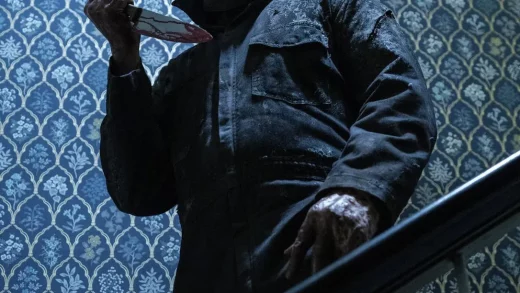:format(webp)/https://www.thestar.com/content/dam/thestar/entertainment/books/reviews/2023/06/22/kathryn-bromwichs-debut-thriller-at-the-edge-of-the-woods-introduces-her-as-a-writer-to-watch/at_the_edge_of_the_woods_book_jacket.jpg)
A fever dream of a novel with a hothouse atmosphere that’s cranked high, “At The Edge of the Woods” stands out for authorial bravado. The slim volume might bring to mind stylish literary classics, from “Wide Sargasso Sea” and “Heart of Darkness” to “Wuthering Heights” and “Rebecca,” but first time U.K. novelist Kathryn Bromwich serves a delectable if bizarre wilderness tale that’s wholly her creation.
Fittingly, it begins with mystery. An unnamed solitary woman recounts her “daily ritual”: “In the mornings, when my thoughts have not yet arranged themselves into their familiar malevolent shapes and the day is still unformed, I wake up before dawn and sheathe myself in layer upon layer of coarse, heavy clothing, and walk deep into the woods while my eyes adjust to the velvety darkness.”
Later, in a village: “I make myself smaller, softer, amenable to human interaction. I change into neat, clean clothes and widen my mouth into a smile, which I practice in the mirror until it is meek and becoming.” Though “brought up to be a docile girl,” the woman has shed that skin.
Bromwich reveals the woman’s recent past in audaciously stylized chapters. She stumbled upon the remote cabin after she disembarked from a train travelling to Italy via France. In the cabin and surrounding forest — balms applied to her inner being — she studies “strange subversive novels by Russian existentialists,” as well as alchemical studies and French occultism. At night she loosens her mind with “laudanum and cheap wine.” (While the specific timeframe is never disclosed, the woman’s pharmacy purchases of laudanum and references to telegrams suggest the early 20th century. Then again, for Bromwich, historical veracity isn’t a cardinal rule.)
Though the woman, Senora Laura Mantovani, may be on a healing journey, her unconventional choices, like the second path of Robert Frost’s poem, make all the difference.
Manifesting her “feral edges,” Mantovani describes arduous forest hikes, taking a lover from the village, and planting a garden of magical fecundity. Disclosing a troubling dependence on laudanum, she further outlines her past. Born in Italy, she was acquired by a French aristocrat, an “awful man” who now fills her with “a venomous and overpowering hatred.” He’s cruel and abusive — calling her “a bad investment — damaged goods” and threatening to send her back to “the sewer” where her found her — and grows vicious as she ages (Mantovani’s not yet 40). In turn, she plans an escape.
After a sudden illness, Senora Mantovani reads Baudelaire and relates a changed world that also highlights Bromwich’s maximalist prose: “The decrepit tree leaning against the front window is decrepit still, but its desiccation has taken on a kind of mournful beauty: its branches are frail phalanges, reaching out with a yearning that puts me in mind of a consumptive heroine.”
Sensing a momentous change within herself and in the villagers’ attitude toward her — her cabin is defaced with graffiti: “witch, bitch, hag — not very imaginative, I have to say” — she begins to spiral.
It “is difficult, in these woods, to be certain of anything,” Senora Mantovani notes, and will perhaps reminds readers of another literary classic written closer to home: Margaret Atwood’s 1972 novel, “Surfacing.”
Beware the woods, Bromwich’s exquisite tale whispers, their gifts are Trojan.
JOIN THE CONVERSATION
does not endorse these opinions.


